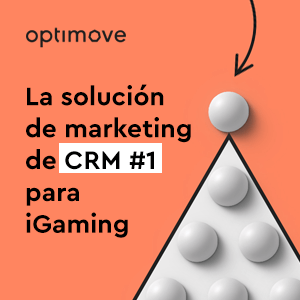Zona de Azar USA – Apple App Store’s Impact on Real-Money Gaming Amid New EU Legislation
 USA.- February 22, 2024 www.zonadeazar.com The inception of the Apple App Store was a turning point in the distribution and monetisation of apps for mobile phones.
USA.- February 22, 2024 www.zonadeazar.com The inception of the Apple App Store was a turning point in the distribution and monetisation of apps for mobile phones.
Challenges Preceding the App Store
Prior to the App Store, we had a somewhat dysfunctional and convoluted way to install extended functionality on our mobile phones—or, in a lot of cases, no ability whatsoever.
I recollect building Symbian App’s and trying to install them on Nokia and Ericsson phones. To be honest, it was so painful and difficult to monetise, we gave up.

New European Legislation
The Apple App Store has estimated annual revenues of $24 billion, making it one of, if not the most valuable, digital storefronts.
New European legislation comes into effect on the 7th March 2024, that will have a sizeable impact on Apple’s policies. The most notable will be:
1. Removing the restriction on In-App Purchasing (IAP), allowing third parties to use external payment for services.
2. External App Stores
Let’s drill into this in a bit more detail.
Challenges and Changes to IAP
Back in 2020, Spotify lodged a complaint against Apple to the European Commission Anti-Trust organisation, stating Apple IAP was anti-competitive and restrictive.
An unnamed (but I suspect we can all guess) audiobook and e-reader retailer made a similar claim, and, although not considered directly, the Epic Games suit against brought in the U.S.one can assume was on the periphery of the commission’s decision, brought in new legislation under the Digital Markets Act (DMA).
Fundamentally, under the DMA Apple cannot mandate the use of IAP by app developers, allowing apps to access external payment services to top up or buy content. This, I think, overall is good for the industry, though, and we should be mindful of this, Apple has the right under the DMA to charge “commission,” and I suspect they will do this through the App Store submission process. We’ll have to wait and see on that one!
Regulating External App Stores
The second item is External App Stores. Apparently, the restrictive practices that Apple applies to their “Guidelines” (let’s face it, they are rules) under their review process are considered anti- competitive. Now I have to say that I disagree with this. As we have seen with Google, which now has a similar review process to Apple with their Play Store, both companies are trying to build trust and stop fraudulent apps from being installed on their platforms.
With the significant increase in digital fraud, surely their approach should be applauded rather than maligned?
Interestingly Google offers a Side Loading option, where you can install an app off a website or even a third-party “App Store.” It flags several security warnings on installation, and on more recent versions of Android, a setting must be enabled (buried deep in the menu) to turn this feature on. In our own analysis of this and surveying user behaviour, we found an almost zero uptake of this feature by “normal” consumers. Sure, the techies occasionally used it, but this shows consumers preferred appetite is to “buy” from trusted merchants (Apple).
Implications for Real-Money Gaming
What’s next? Well, the new Apple Guidelines have been published, and the original 4.7 section has subtly changed; importantly, section 5.3 has NOT changed, and critically, the issue of IAP never applied to the Betting, Gaming, and Lottery (BGL) industries. So, ironically, the Digital Markets Act is somewhat irrelevant to us.
The original guideline requirement under 4.7.1 of “not provide access to real-money gaming” has been removed. However, critically, this has been added to 4.7: “You are responsible for all such software offered in your app, including ensuring that such software complies with these guidelines and all applicable laws.”
Therefore, we view this as meaning that the organisation submitting an app to Apple App Store is responsible for ALL content that the app offers and, critically, within the BGL space, that it complies with all the Apple Guidelines and local applicable laws. So, provided your HTML5 casino games are licensed by an appropriate regulator (and thus comply with applicable laws), you are now free NOT to embed the content in the app – bye, bye ODR.
We are still waiting for full clarity from Apple…
Part of their answer has been to submit an app and see what happens – which is exactly what we have just done – so we’ll see, but this does seem to be a 180 reversal of Apple’s original 2019 guideline change.
Edited by: @MaiaDigital www.zonadeazar.com











































